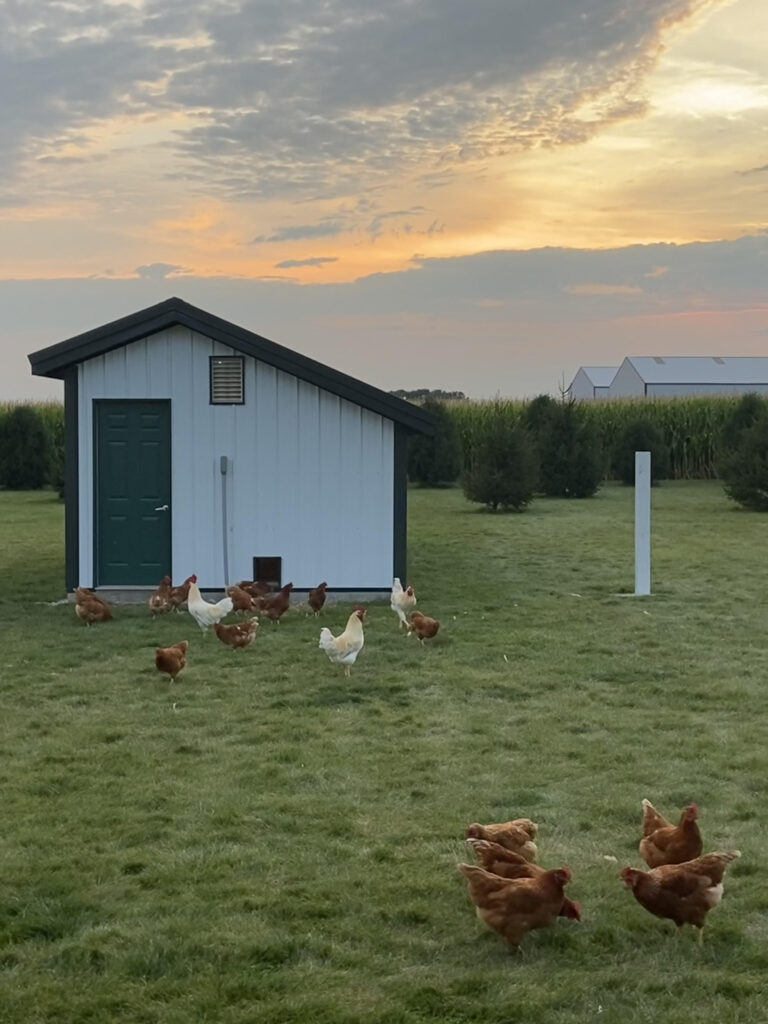CHAMPAIGN — Americans have felt the pain of inflation in grocery stores this year. The USDA estimates that the cost of groceries was 10.6 percent higher in November 2022 than November 2021. Prices may finally be on their way down as the Federal Reserve tinkers with interest rates, but the cost of one product – eggs -remains stubbornly high.
According to the data tracking firm Datasembly, egg prices have risen as much as 64 percent in some states. Shoppers have taken to social media to voice frustration about soaring costs and empty shelves. In December, a TikTok user went viral with a video lamenting that the price of her go-to eggs had recently doubled – to an eye-watering 20-dollars.
“Wait…that…what?” she sputtered.
The answer to that question largely has to do with the avian flu. Since the most recent outbreak was first detected in Indiana last February, the virus has wiped out more than 44 million egg-laying hens, according to the Department of Agriculture. The resulting drop in production combined with the effects of inflation has led to fewer eggs and higher prices.
But not all egg producers have suffered the same losses due to the avian flu. Penny Gioja operates Joy of Illinois Farm in Champaign. She said her birds have so far been spared, and that’s thanks in part to the farm’s location. “We’re out on this small farm west of Champaign and there are no (other) chickens that I know of within several miles of us. So the chances of our chickens getting sick is pretty low,” Gioja said.
The virus itself is not what’s caused the death of so many chickens, Gioja explained. If the avian flu is detected within a flock, all of the chickens have to be culled, or killed, in order to prevent the virus from spreading. Gioja said the same is true even if the virus is detected on a neighboring farm. In that case, all birds in the vicinity would have to be culled.
The Stierwalt family, who operate a poultry farm in Sadorus, Illinois, southwest of Champaign, has also so far been spared from the effects of the virus. Maddie Stierwalt said she feeels particularly fortunate because the farm’s chickens are primarily free range and forage in areas where wild birds frequent. Stierwalt said egg production holding steady on her farm, despite the fact that hens tend to produce fewer eggs in the winter months.
“Our chicken house has lighting set to add light to the beginning of the day as well as the end of the day to mimic the longest day of the year,” Stierwalt said. “So we don’t really see a drop off due to the time of year.”
Stierwalt said so far, the farm has had no problem keeping up with the demand for eggs from their regular customers, most of whom are individuals or families. The farm distributes directly to its customers, and Stierwalt often delivers the eggs herself on the way to drop off her kids at school. She said people often come to tour the farm and meet the chickens before deciding to become customers. Stierwalt believes that’s one of the upsides to buying food locally. “One of the greatest advantages is knowing where your food comes from and the manner in which it was produced,” she said.
Another advantage to local foods, according to Stierwalt, is the ability of small farmers to insulate themselves from problems that can plague larger producers, like the spread of disease and supply chain disruptions. Sarah Buckland is the marketing manager of Common Ground Food Co-op in Urbana. She said the store, which contracts with a network of local farmers, has experienced that advantage firsthand.
“I think we first started noticing this during COVID when a lot of places were out of stock on meat, or produce, or dairy and we had all those things thanks to our local farmers,” Buckland said.
Buckland said Common Ground has noticed a definite uptick in customers seeking out eggs over the past few weeks, as well as a sharp increase in first-time shoppers. And while there’s no way to know for sure if those first-timers are visiting the co-op because of a shortage of eggs at larger grocery stores, Buckland thinks it’s a good bet.
So far, Common Ground has been able to keep up with the increased demand for eggs. For that, Buckland credits the six local egg producers that contact with the store. Buckland said she’s hopeful that some of those first-time shoppers getting lucky with local eggs might now become supporters of local farms.

